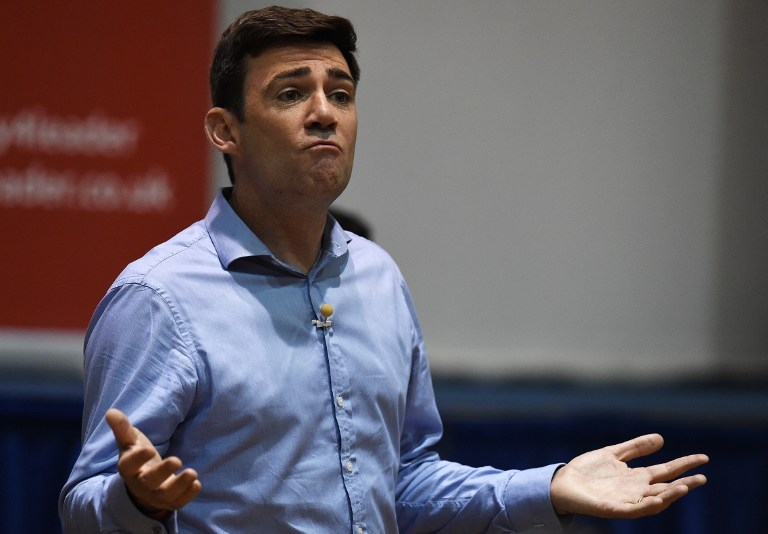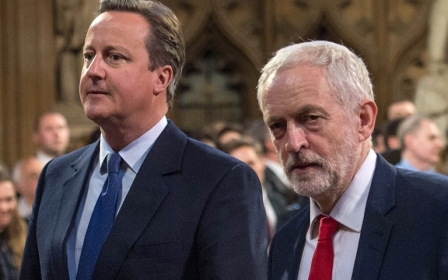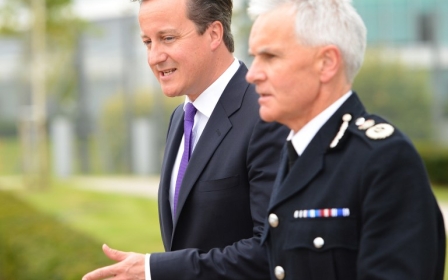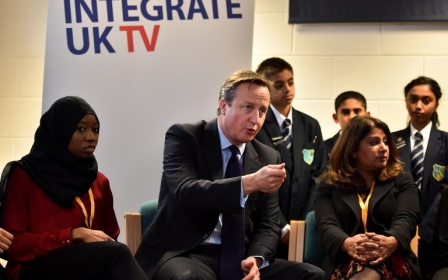UK government urged to 'step back' from plans to outlaw extremism

The UK government’s Prevent strategy is building a “climate of suspicion and distrust” that has alienated Muslim communities and risks creating the conditions for extremism to flourish, the opposition Labour Party’s home affairs spokesman has told parliament.
In a debate on Tuesday about government plans unveiled last week for a counter-extremism bill that would seek to outlaw Islamic extremism, Andy Burnham, the shadow home secretary, called on the government to “take a step back” rather than pressing ahead with new legislation.
He also urged the government to set up a cross-party review to look at whether the widely criticised statutory Prevent duty, which was introduced in schools, hospitals and other public sector settings last year, was working.
The Prevent duty requires public sector workers, ranging from nursery childcare staff to teachers and doctors, to “have due regard to the need to prevent people from being drawn into terrorism”.
Since then the number of young people referred to the Prevent-linked Channel counter-radicalisation programme has surged, with almost 4,000 referrals logged in 2015 compared with 1,681 in 2014.
But the strategy's reputation has been damaged by accusations that it is discriminatory against Muslims and undermines freedom of speech and freedom of religion.
Burnham told parliament: “I would be the first to say that the government are right to want to tackle extremism, and I support them in that aim. However, the question is not whether we do it, but how we do it. I am genuinely concerned that the government are getting their approach drastically wrong.
“The Prevent duty to report extremist behaviour is creating a feeling that the Muslim community is unfairly targeted and monitored. It is building a climate of suspicion and distrust. In my view, if the government legislate further and extend what is perceived to be an illiberal and discriminatory approach, far from tackling extremism, they will risk creating the conditions for it to flourish.”
Burnham also accused members of the Conservative Party, including Prime Minister David Cameron of “throwing suspicion” on Muslim communities after Conservative MP Gerald Howath suggested that “Islamic fundamentalism” was a problem that British Muslims needs to address.
“I understand the shadow home secretary’s concern, but the rest of the nation knows that the real threat we face is a specific one,” said Howath.
“With Islamic fundamentalism, barbarity on a scale previously unimagined is being carried out in the name of Islam, and it is up to the Muslim community in Britain to address this problem in its midst.”
Burnham said in reply that the way to address the problem was not to “tar everybody with the same brush and throw suspicion on the whole community”.
“That is the language we have heard from Conservative members. We have heard the prime minister say that parts of the Muslim community are “quietly condoning” extremism,” he said referring to a speech by Cameron last year in which he suggested that some British Muslims had ideological sympathies with the Islamic State (IS) group.
“That does not win hearts and minds in the community, and we need 99.9 percent of people to work with the government to find the very small number of people who may be at risk of radicalisation.”
Burnham’s remarks, which come after party leader Jeremy Corbyn also called on the government to reform Prevent, mark a shift in tone for Labour, which originally launched Prevent as part of a package of counter-terrorism measures introduced by Tony Blair's government in the aftermath of the 2005 London bombings.
The party has also expressed common cause with the Conservatives in the recent past about the need to fight Islamist extremism, which Cameron last year called the "struggle of our generation".
“This is the greatest challenge of our age and the prime minister is right to devote his focus to it,” Burnham said in response to the launch of a revamped government counter-extremism strategy last October.
'It is a minefield'
Critics of Prevent argue that it is discriminatory against Muslims and based on flawed theories of radicalisation suggesting a link between ideology or religion and political violence.
Advocates argue that Prevent staff are providing vital safeguarding for vulnerable individuals and have reached thousands of people at risk of radicalisation. They also say that it tackles all forms of extremism, including far-right ideology and Islamophobic hatred.
Criticism of the government’s plans for a counter-extremism bill has focused on concerns over the definition of extremism, which many Muslims fear could also target political activists or those who hold conservative religious views, and lawyers say could be challenged on discrimination and freedom of speech grounds.
Philip Hammond, the defence secretary, conceded in Tuesday's debate that the “boundary line between acceptable and non-acceptable behaviour is fine and fraught with dangers. It is a minefield".
Replying to Burnham, Theresa May, the home secretary, said the government “recognised the sensitivities involved” and would carry out a consultation into its plans for a counter-extremism bill.
“It is absolutely right that our proud tradition of defending shared values has allowed Britain to grow into the diverse, tolerant and inclusive country it is today,” May said.
“However, we also have a responsibility to respect the rights of others. We should be concerned about, and stand up to, those who seek to sow the seeds of division between our communities, pushing us further apart rather than choosing to bring us together.
“Legislation can only be part of the answer, but where there is a gap in the law we must act. That is why we will introduce a counter-extremism and safeguarding Bill”.
Labour’s Harriet Harman said the government’s counter-extremism strategy was based on an “unproven” assumption of “an escalator that starts with religious conservatism and ends up with support for jihadism, and that religious conservatism therefore is the starting point in the quest to tackle violence”.
Harman chairs the parliamentary joint committee on human rights which is currently conducting an inquiry into whether Prevent contravenes European human rights laws.
“Everyone seems to agree that the most precious asset in the fight against terrorism is the relationship between the authorities - the police, the schools and the councils - and the Muslim communities of this country," she said.
"We must guard against any undermining of the relationship between the authorities and the Muslim community, which would thereby make the fight against terrorism even harder. The last thing we must do is anything that fosters the alienation that can lead to radicalisation."
New MEE newsletter: Jerusalem Dispatch
Sign up to get the latest insights and analysis on Israel-Palestine, alongside Turkey Unpacked and other MEE newsletters
Middle East Eye delivers independent and unrivalled coverage and analysis of the Middle East, North Africa and beyond. To learn more about republishing this content and the associated fees, please fill out this form. More about MEE can be found here.




